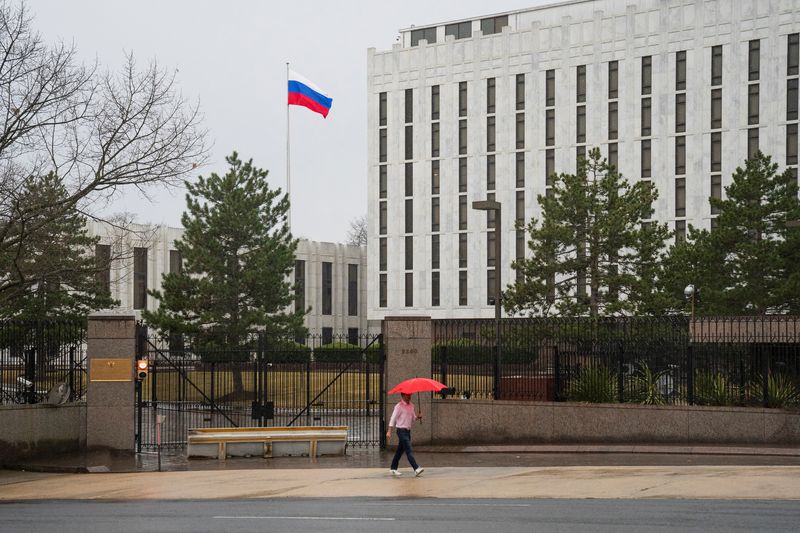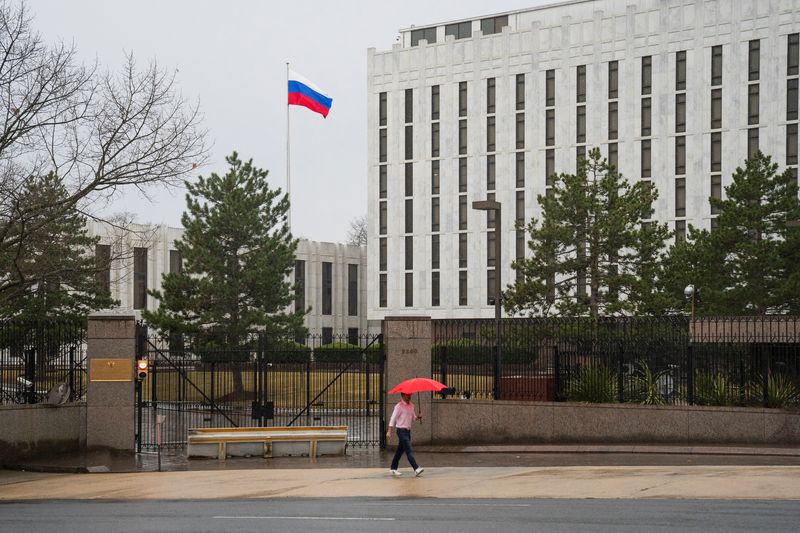Stock Markets
Kremlin dismisses report Russia behind ‘Havana Syndrome’

MOSCOW (Reuters) -The Kremlin on Monday dismissed a report that Russian military intelligence may be behind the mysterious “Havana syndrome” ailment that has afflicted U.S. diplomats and spies globally.
Insider, a Russia-focused investigative media group based in Riga, Latvia reported that members of a Russian military intelligence (GRU) unit known as 29155 had been placed at the scene of reported health incidents involving U.S. personnel.
The year-long Insider investigation in collaboration with 60 Minutes and Germany’s Der Spiegel also reported that senior members of Unit 29155 received awards and promotions for work related to the development of “non-lethal acoustic weapons”.
“This is not a new topic at all; for many years the topic of the so-called ‘Havana Syndrome’ has been exaggerated in the press, and from the very beginning it was linked to accusations against the Russian side,” Kremlin spokesman Dmitry Peskov told reporters when asked about the report.
“But no one has ever published or expressed any convincing evidence of these unfounded accusations anywhere,” Peskov said. “Therefore, all this is nothing more than baseless, unfounded accusations by the media.”
In Washington, the Pentagon confirmed that a senior Pentagon official experienced symptoms similar to those associated with the “Havana syndrome” during the NATO summit in Vilnius last year.
Symptoms of the ailment have included migraines, nausea, memory lapses and dizziness.
Pentagon spokesperson Sabrina Singh said that official was not a part of U.S. Defense Secretary Lloyd Austin’s delegation and referred questions to the intelligence community on the broader issue.
The Office of the Director for National Intelligence pointed to the 2024 Annual Threat Assessment that said the U.S. intelligence community continues “to closely examine” so-called Anomalous Health Incidents but noted that most agencies concluded that it “is very unlikely a foreign adversary is responsible.”
U.S. intelligence agencies assessed that symptoms, first reported by U.S. embassy officials in the Cuban capital Havana in 2016, “probably were the result of factors that did not involve a foreign adversary.”
The Insider report said the first incident of “Havana Syndrome” symptoms may have happened earlier than 2016.

It said “there were likely attacks two years earlier in Frankfurt, Germany, when a U.S. government employee stationed at the consulate there was knocked unconscious by something akin to a strong energy beam”.
U.S. Congress passed the Havana Act in 2021 authorising the State Department, CIA and other U.S. government agencies to provide payments to staff and their families affected by the ailment during assignment.
Stock Markets
Suburban Propane director Logan sells $139k in shares
Stock Markets
Stock market today: S&P 500 closes lower, but posts big weekly win
Stock Markets
TD Bank promotes Laura Nitti to retail market president role

 Forex3 years ago
Forex3 years agoForex Today: the dollar is gaining strength amid gloomy sentiment at the start of the Fed’s week

 Forex3 years ago
Forex3 years agoUnbiased review of Pocket Option broker

 Forex3 years ago
Forex3 years agoDollar to pound sterling exchange rate today: Pound plummeted to its lowest since 1985

 Forex3 years ago
Forex3 years agoHow is the Australian dollar doing today?

 Cryptocurrency3 years ago
Cryptocurrency3 years agoWhat happened in the crypto market – current events today

 World3 years ago
World3 years agoWhy are modern video games an art form?

 Commodities3 years ago
Commodities3 years agoCopper continues to fall in price on expectations of lower demand in China

 Economy3 years ago
Economy3 years agoCrude oil tankers double in price due to EU anti-Russian sanctions























